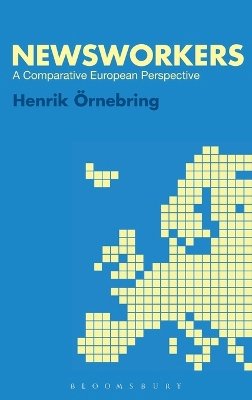
Newsworkers: A Comparative European Perspective
Dr. Henrik Örnebring
The last decade has seen a transformation of journalism industries and the working lives of our journalists. Do the changes have the same impact everywhere? Do journalists today experience these changes as a pressure or as a possibility? Is something irrevocably lost from journalism with these changes?
Newsworkers takes a broad range of European countries - North and South, East and West, big and small - comparing in each how journalism as work has been affected by the changes in journalism institutions. The book looks at three pertinent and topical questions: the role of technology in changing journalism work practice; the decline or not of professional values; and whether journalism is becoming more homogenous across national borders.
Drawing on extensive and original research, the book provides a comprehensive picture of contemporary European journalism.
Product Details
About Dr. Henrik Örnebring
Reviews for Newsworkers: A Comparative European Perspective
David H. Weaver, Distinguished Professor Emeritus of Journalism, Indiana University, USA
Newsworkers: A Comparative European Perspective is a welcomed comparative account on the realities of journalism, which is particularly relevant in a time when journalists are struggling with a changing media world. Theoretically rich and empirically illuminating, Örnebring's book takes a fresh look into journalistic cultures in a variety of European countries. It is a great resource and vantage for scholars interested in state-of-the-art comparative journalism research.
Thomas Hanitzsch, Chair and Professor of Communication, LMU Munich, Germany
Well-theorized and well-researched, Örnebring’s book provides an insightful look at the daily pressures of working journalists. We gain important comparative evidence that brings into relief commonalities and differences across Europe while also hearing the voices of journalists struggling to adapt their understandings of professionalism to a changing media environment.
Matt Carlson, Associate Professor of Communication, Saint Louis University, USA
